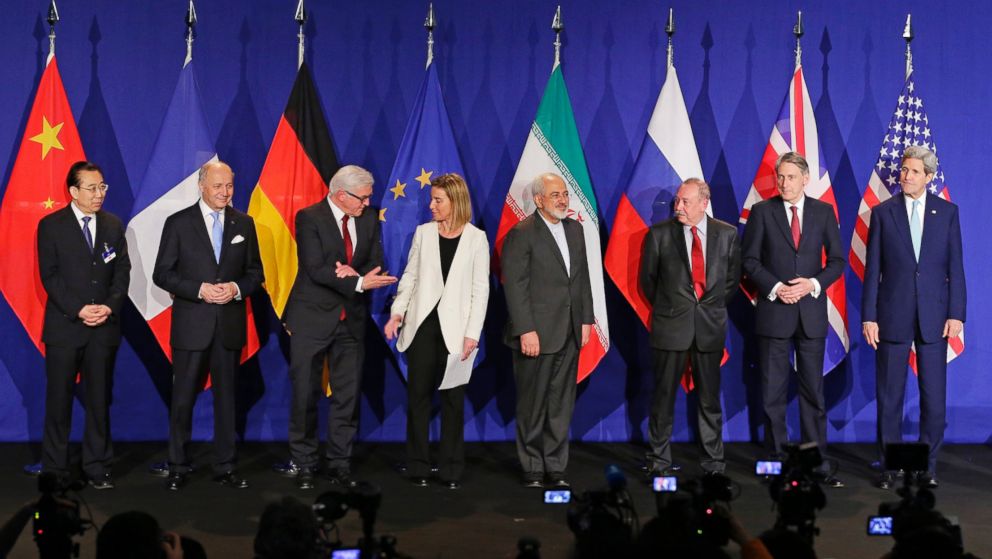On January 16, implementation of the Joint Comprehensive Plan of Action (JCPOA) – the multilateral nuclear accord with Iran – reached Implementation Day. The IAEA verified that Iran took a number of key concessions that significantly rolled back its nuclear capabilities. In return, the United States suspended nuclear-related sanctions while multilateral nuclear-related sanctions were lifted. Even after the relief of these sanctions, Iran remains one of the most sanctioned countries on earth.
If the parties move forward with implementation, the JCPOA will prevent two disasters: an Iranian nuclear weapon and a war with Iran.
Before the relief of sanctions, the IAEA confirmed the completion of the following steps:
o Iran dismantled approximately 13,000 installed centrifuges;
o Iran reduced its uranium stockpile by 97%;
o The core of the Arak reactor was dismantled and filled with concrete, rendering it inoperable;
o Iran worked with the IAEA to institute a rigorous inspection regime; and
o Iran cooperated with the IAEA investigation into prior, possible military dimensions to its nuclear program.
See our memo: Summary of the Joint Comprehensive Plan of Action
With implementation, Iran’s potential pathways to a nuclear weapon are cut off:
o Iran is limited to enriching with 5,060 heavily-monitored first generation centrifuges at a single facility for a decade;
o Iran’s enrichment level is capped at 3.67%, far below weapons grade;
o Iran’s enriched uranium stockpile remains at or below 300 kg for fifteen years, a fraction of the amount needed for a single nuclear weapon with further enrichment;
o Iran will redesign the Arak facility so that it will not have a plutonium pathway to a nuclear weapon;
o Iran foregoes reprocessing and ships out all spent fuel from Arak and future reactors;
o The agreement imposes the strongest inspection regime ever negotiated – If Iran attempts to cheat, they will be detected;
o Iran’s entire nuclear fuel cycle will be closely monitored, with inspectors now gaining access to Iran’s uranium mines and mills, centrifuge production facilities and any suspicious sites; and
o Via the Additional Protocol, inspectors can access any site they need to when they need to (within 24 days or less), including any suspicious military facility.
If Iran were to abandon the agreement over the next ten years, it would take them at least a full year to produce sufficient weapons-grade uranium for a single nuclear weapon. Without a deal, this time could drop to a few weeks and approach an undetectable breakout.
See our memo: Congress Should Support the Joint Comprehensive Plan of Action
In return, the U.S. has lifted nuclear-related sanctions imposed to get a deal:
o The lifting of key nuclear-related sanctions will reduce the plight of the Iranian people, who have suffered under broad sanctions far more than the regime;
o The Iranian people, including human rights defenders, are strongly in favor of the accord and believe it is necessary to relieve Iran’s harsh security environment;
o The Iranian government has indicated that it intends to direct funds released under the deal into improving the domestic economy;
o For the near future, the U.S. will maintain both the trade embargo on Iran, with few exceptions, as well as sanctions targeting Iran for ties to terrorist groups and human rights violations; and
o Even after the imminent relief of nuclear-related sanctions, Iran will remain one of the most sanctioned countries on Earth.
See our memos: Iran Sanctions After the JCPOA and Five Key Sanctions Questions on the Iran Deal
The JCPOA is a win-win for the United States. The U.S. blocks Iran’s pathways to a nuclear weapon and lifts sanctions that punish the Iranian people and have stood in the way of domestic moderation. Now that the JCPOA is in hand, Congress must avoid moving the goalposts from halting an Iranian nuclear weapon to halting sanctions relief. The JCPOA deserves the full support of Congress and should be defended from any future threats.
Back to top